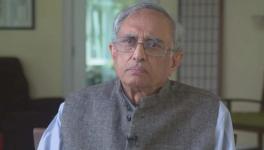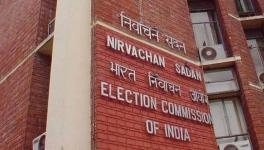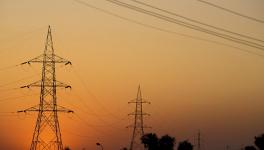Former Secretary to GOI Opposes Ministry of Power's Proposal to Make Consumers Pay for DISCOM Losses
Representational use only.Image Courtesy: Pixabay
New Delhi: Former Secretary to the Government of India, E A S Sarma, has written a letter to the Chief Ministers regarding the recent order by the Ministry of Power asking the state governments to pass on 50% of losses incurred by Distribution Companies (DISCOM) to consumers. In his letter, Sarma argues that the Centre- not the consumers, should bear a portion of DISCOM losses.
According to a report published in The New Indian Express, the Ministry released its draft Electricity (Amendment) Rules, 2023, by substituting two clauses in the Electricity Rules, 2005, and sought the comments of the States by May 11.
The Ministry incorporated the “Framework for Financial Sustainability” provision in the draft Rules. This provision states that the gains/losses accrued to the distribution licensee due to deviation from the approved Aggregate Technical and Commercial (AT&C) loss reduction trajectory shall be quantified based on the average power purchase cost and shared between the distribution licensee and consumers.
If the Discoms earn profits, two-thirds of the gains shall be passed on to the consumers, and the Discom shall retain the rest. In the case of a loss, half of the loss shall be borne by the distribution licensee, and the other half shall be passed on to the consumers as a tariff.
In his letter, Sarma says that “the stand taken by the Ministry of Power is not only unilateral, but it also ignores the fact that a large portion of the losses suffered by Distribution Companies (DISCOM) is attributable to obligations imposed by the Centre unfairly on State power utilities.”
Read the full letter below.
To
Chief Ministers
Respected Chief Minister,
It is reported that (https://www.newindianexpress.com/states/telangana/2023/apr/22/centre-wants-consumers-to-share-losses-of-discoms-2568272.html) the Ministry of Power “has asked State governments to pass on 50% of the losses incurred by Discoms to consumers. The Ministry released its draft Electricity (Amendment) Rules, 2023, by substituting two clauses in the Electricity Rules, 2005, and sought the comments of the States by May 1”
The stand taken by the Ministry of Power is not only unilateral but it also ignores the fact that a large portion of the losses suffered by Distribution Companies (DISCOM) is attributable to obligations imposed by the Centre unfairly on State power utilities.
Some of these obligations are as follows:
-
The Ministry of Power has directed the State DISCOMS to absorb electricity from centralised solar power generation plants, from which, the unit cost of electricity delivered at the consumer’s end is high due to the low capacity utilisation of large solar plants. As a result, the State electricity utilities are often forced to deny themselves the option to procure electricity from cheaper sources.
-
The recent coal shortages faced by thermal power plants arose as a result of the Centre’s mismanagement of domestic coal supplies and railway movement of coal. Pretending that it had nothing to do with the crisis, the Centre imposed an obligation on the States to import coal from overseas sources, some of which are owned by domestic big business houses. The latter exploited the artificially created coal scarcity situation and quoted astronomical prices, placing a very heavy cost burden on DISCOMS. Had the Centre anticipated the emerging electricity demand, as it ought to have, and taken advance action to ramp up coal production and railway movement, it would have enabled the State power utilities to secure ready access to less expensive domestic coal, which in turn would have saved the DISCOMs from incurring the consequent financial losses.
-
As far as DISCOMs are concerned, 80% of the cost of electricity delivered by them to the consumers is directly attributable to the upstream cost of generation of electricity. The Centre’s mindless approach over the years to privatise electricity generation has resulted in the States having to enter into regressive power purchase agreements (PPAs) with private companies to enable the latter to procure loans from banks. Private generating companies are driven by their profit motive, not by societal needs. Electricity supplies from such private generators steeply increased the average cost of electricity generation. When some States subsequently tried to renegotiate the PPAs to reduce the costs, the Ministry of Power, instead of helping them, tried to prevent them from renegotiating the PPAs.
-
Of late, the Ministry of Power has been issuing diktats under Section 11 of the Electricity Act of 2003 to State power generation utilities imposing obligations such as the ones referred above, though strictly, it may not have the authority under that Section to issue directives to State generation companies.
-
But for the exemplary efforts made by the States since the creation of State Electricity Boards in the early fifties, succeeded by their counterpart entities, namely, the State generation, transmission and distribution (DISCOMs) companies, many remote parts of the country and millions of disadvantaged households would not have secured access to electricity, an essential intermediate input for all-round socio-economic development across the country. It is the pivotal role played by the State power utilities that helped enhance agricultural production in many parts of the country, making India self-reliant in foodgrains and several other agricultural; commodities. The State utilities could achieve all this by making prudent investments in electricity generation, transmission and distribution facilities and subsidising electricity to ensure that farmers, disadvantaged sections of society, small artisans and marginal businesses could secure access to electricity at affordable prices. The Ministry of Power, which is never tired of taking full credit for “100% electrification of villages”, should recognise the States’ enormous contribution to national electricity development and offer to share at least an equal portion of the cost of it.
The above examples should drive home a realisation on the part of the Ministry of Power that electricity is a subject that falls in the concurrent jurisdiction of the Centre and the States, that the Centre and the States are federal partners in electricity development and that they should equitably share the social benefits and the social costs of it, instead of constantly pushing the blame to the States, the State power utilities and the consumers.
These are issues that the States should take up with the Ministry of Power and question the unilateral diktats issued by it to the State from time to time, which in turn impose a huge cost burden on the consumers.
Regards,
Yours sincerely,
E A S Sarma
Former Secretary to the Government of India
Visakhapatnam
Get the latest reports & analysis with people's perspective on Protests, movements & deep analytical videos, discussions of the current affairs in your Telegram app. Subscribe to NewsClick's Telegram channel & get Real-Time updates on stories, as they get published on our website.
























